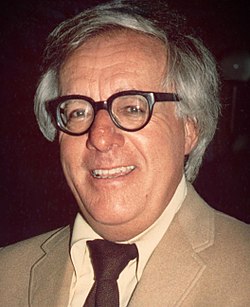Ray Bradbury Quote
Mr. Moundshroud, who are YOU? And Mr. Moundshroud, way up there on the roof, sent his thoughts back: I think you know, boy, I think you know. Will we meet again, Mr. Moundshroud? Many years from now, yes, I’ll come for you. And a last thought from Tom: O Mr. Moundshroud, will we EVER stop being afraid of nights and death? And the thought returned: When you reach the stars, boy, yes, and live there forever, all the fears will go, and Death himself will die. Tom listened, heard, and waved quietly. Mr. Moundshroud, far off, lifted his hand. Click. Tom’s front door went shut. His pumpkin-like-a-skull, on the vast Tree, sneezed and went dark.
Ray Bradbury
Mr. Moundshroud, who are YOU? And Mr. Moundshroud, way up there on the roof, sent his thoughts back: I think you know, boy, I think you know. Will we meet again, Mr. Moundshroud? Many years from now, yes, I’ll come for you. And a last thought from Tom: O Mr. Moundshroud, will we EVER stop being afraid of nights and death? And the thought returned: When you reach the stars, boy, yes, and live there forever, all the fears will go, and Death himself will die. Tom listened, heard, and waved quietly. Mr. Moundshroud, far off, lifted his hand. Click. Tom’s front door went shut. His pumpkin-like-a-skull, on the vast Tree, sneezed and went dark.
Related Quotes
About Ray Bradbury
Ray Douglas Bradbury (US: BRAD-berr-ee; August 22, 1920 – June 5, 2012) was an American author and screenwriter. One of the most celebrated 20th-century American writers, he worked in a variety of genres, including fantasy, science fiction, horror, mystery, and realistic fiction.
Bradbury is best known for his novel Fahrenheit 451 (1953) and his short-story collections The Martian Chronicles (1950), The Illustrated Man (1951), and The October Country (1955). Other notable works include the coming of age novel Dandelion Wine (1957), the dark fantasy Something Wicked This Way Comes (1962) and the fictionalized memoir Green Shadows, White Whale (1992). He also wrote and consulted on screenplays and television scripts, including Moby Dick and It Came from Outer Space. Many of his works were adapted into television and film productions as well as comic books. Bradbury also wrote poetry which has been published in several collections, such as They Have Not Seen the Stars (2001).
The New York Times called Bradbury "An author whose fanciful imagination, poetic prose, and mature understanding of human character have won him an international reputation" and "the writer most responsible for bringing modern science fiction into the literary mainstream".
Bradbury is best known for his novel Fahrenheit 451 (1953) and his short-story collections The Martian Chronicles (1950), The Illustrated Man (1951), and The October Country (1955). Other notable works include the coming of age novel Dandelion Wine (1957), the dark fantasy Something Wicked This Way Comes (1962) and the fictionalized memoir Green Shadows, White Whale (1992). He also wrote and consulted on screenplays and television scripts, including Moby Dick and It Came from Outer Space. Many of his works were adapted into television and film productions as well as comic books. Bradbury also wrote poetry which has been published in several collections, such as They Have Not Seen the Stars (2001).
The New York Times called Bradbury "An author whose fanciful imagination, poetic prose, and mature understanding of human character have won him an international reputation" and "the writer most responsible for bringing modern science fiction into the literary mainstream".
